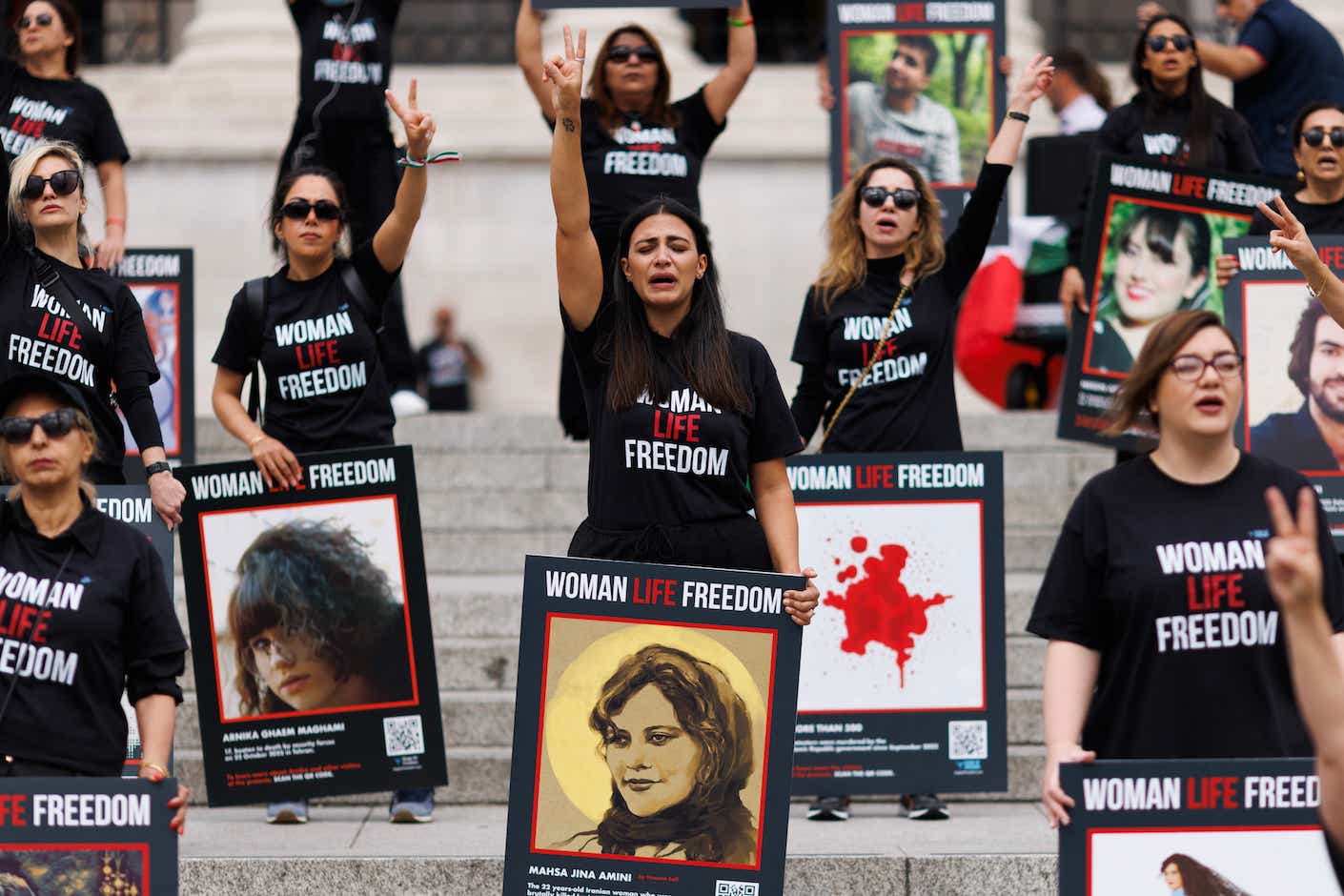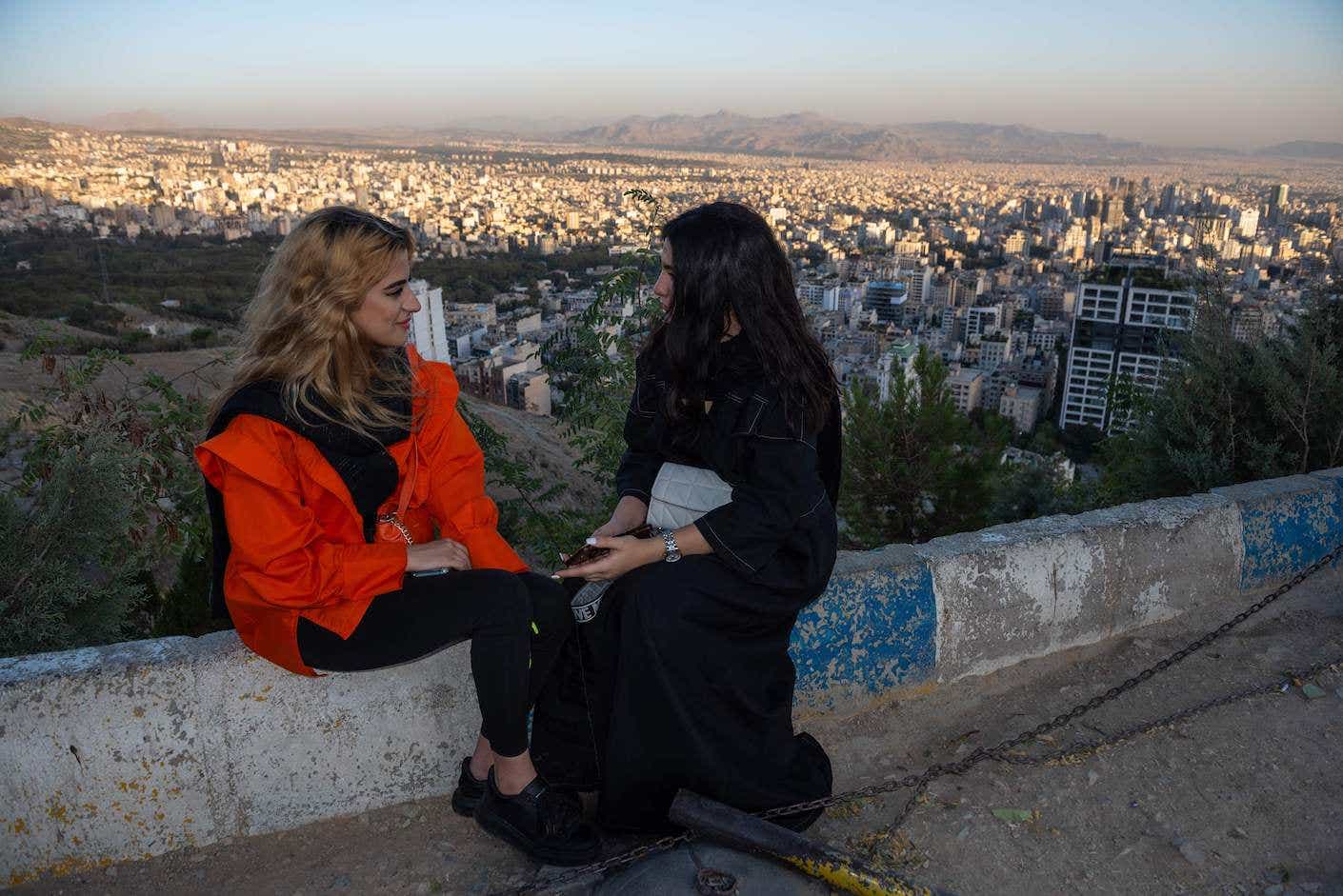One year ago, a 22-year-old Iranian woman named Mahsa Amini died in the Islamic Republic of Iran. She had allegedly been beaten by the Republic's morality police for showing "too much" hair from under her veil. Amini's untimely and reportedly brutal death inspired a serious political upheaval in the country in a series of intense, anti-regime protests.
A year after Amini's death, Katie was curious about how that large-scale political unrest has changed life in Iran. She reconnected with Iranian-born actress and human rights activist, Nazanin Boniadi, whom she interviewed shortly after Amini's death last year. This time, they discussed the fallout of the protests, how the Iranian people are still seeking freedom, and what you can do to help. Watch the video of Katie and the 2023 Sydney Peace Laureate, and read our favorite moments from their inspiring discussion.
Katie Couric: Thank you so much, Nazanin, for talking with us on this sad anniversary. Can you believe it's been a year?
Nazanin Boniadi: If you had asked me a year ago when I spoke to you last, "Do you think we will be in exactly the same situation a year later?" I would have said no. Because I genuinely thought that conditions would change. But we've had a brutal crackdown. The regime has killed over 500 protesters in prisons. More than 20,000 protesters arrested, at least seven gassed, blinded, raped, tortured. Some Iranians have forcibly disappeared. Here we are again, back at the negotiating table with the Islamic Republic, about to unfreeze $6 billion in assets and exchange innocent hostages for convicted criminals. What gives me hope is the fight of the Iranian people. We're not seeing the same numbers on the street, but that resilience and the tenacity is very much alive in their psyches, their hearts, and their minds.

Mahsa Amini's death triggered Iran's longest anti-government protests since the 1979 revolution. But was any progress made? What's the status of this movement?
There are hundreds of thousands of Iranian women in major cities across Iran right now, as we speak, walking around without the hijab — keep in mind it's still compulsory. They're defying the regime. There's a courage inside the country that's contagious. This is more than just a hashtag.
They're demanding women's rights. They want a normal life and they want their fundamental freedoms. It's really gone beyond draconian dress codes. It's beyond just women's rights at this point. It's become a national uprising against the Islamic Republic.
I hope the international community understands that the compulsory hijab is not part of Iran's culture. For the entire time I've been an activist, I've spoken to well-meaning progressives who would say, "We don't want to talk about the hijab because we don't want to insult their culture." I hope what's happened in the past year has thoroughly debunked the idea that it's part of Iran's culture. Cultural norms shouldn't be enforced through threats of death or violence.
Iranian society will never be the same again. I know this is the twilight of the regime. The question is how long will it take for it to end and for democracy to prevail. The onus is on us, the international community, to tip that balance of power in favor of the protesters.

How can people support women and young people who are fighting for change in Iran?
As simple and trivial as it may seem, it's amplification. Whether it's on social media, writing articles, or [investigating the issue] if you're a journalist. And if you see somebody who's been implicated in any kind of crime against humanity in Iran, make sure that they're de-platformed in the West. They have no right to be living in a free, democratic country when they've been responsible for the oppression of the Iranian people.
We as citizens in Western countries have a vote and we have a voice. Those are the two things we can use. So make sure we're electing people who aren't short-sighted on these topics. Talking to Iranian people, amplifying the voices of Iranian dissidents, and refusing to turn a blind eye [will help].
All it takes is showing up as an ally. I hope that on the 16th, which is the anniversary, the rallies are filled with non-Iranians. That's what gives us the courage to keep fighting — knowing that the world is with the people of Iran. That's the hope — that this turns into what we saw for South Africa and the anti-apartheid movement.








